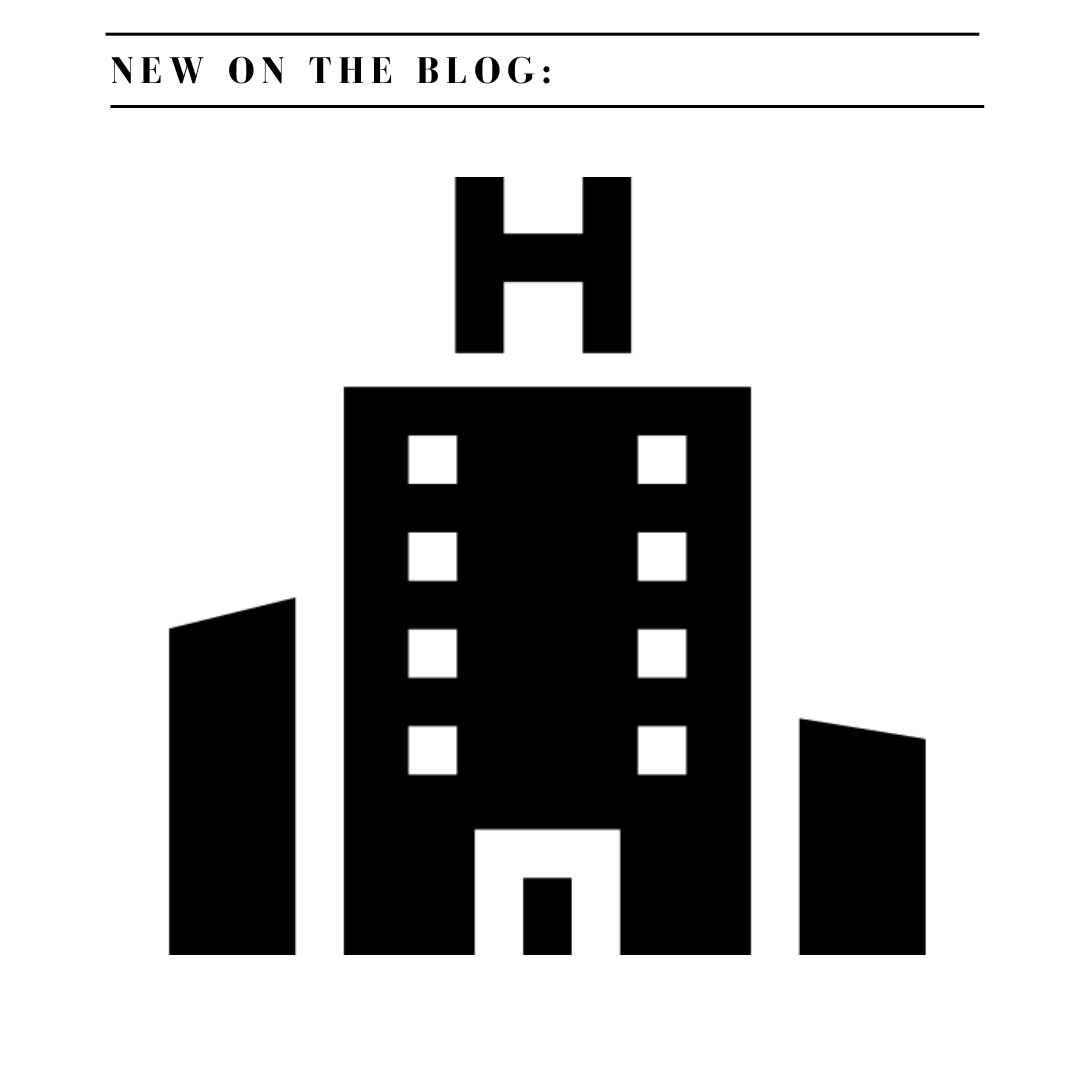 Add My Company
Add My Company
Sign In
Vital Importance of Hotel Security
31-05-2023

The COVID-19 pandemic saw the number of UK hotel booking plummet by around 95%. But with hotel bookings now growing, hotel security is a notable concern for the hospitality industry and guests. Hotel and guest house owners and operators face many challenges. One that’s common to all enterprises, from high-end luxury hotels to budget chains and seaside guest houses, is security. Business and leisure travellers cite hotel security and safety amongst their primary concerns when considering where to stay. And the reputation of a guest house or hotel is primarily based upon customer experience, which is why its vital to pay attention to security. What is Hotel Security? Hotel security is all about the management of all aspects of a hotel’s operations, its property, grounds, equipment, personnel and more. Hotel security involves the establishment of effective procedures, systems and personnel to ensure the safety and security of all guests, their belongings and the staff. Hotel security must make guests feel they and their personal property, including their vehicles, are always safe. Guests and staff must be protected from violence within the hotel and any unruliness needs to be dealt with swiftly and effectively. Suspicious activities and individuals need to be identified and hotel staff must be capable of handling a variety of threatening situations. Common Hotel Security Issues Hotels and guest houses face a wide range of security challenges. But most can be broadly categorised as physical threats, financial threats and information threats. Physical Threats Physical threats relate to the safety, security and wellbeing of hotel guests and staff. Establishments need to effectively deal with anti-social behaviour and unauthorised visitors without escalating situations and putting people at risk . Antisocial behaviour and sexual harassment against staff along with violence between guests, threatening behaviour and vandalism, are all common issues in the hospitality industry. Venues serving alcohol to a wide variety of customers inevitably face challenging situations and unacceptable behaviour when guests and visitors become inebriated. Identifying and tracking unauthorised visitors is also extremely challenging. People might enter a hotel with malicious intentions and authorised guests might bring friends or acquaintances back to their rooms. Not knowing how many people are in a hotel can make it difficult to remain compliant with safety regulations. Financial Threats Hotels and their guests face a variety of potentially costly losses. Guests need to know their property and vehicles are all safe in the hotel. And hotel management must ensure all of the hotel’s equipment and systems are safe, secure and protected. Theft is one of the primary aspects of financial threat for which protection is needed. But the property of hotel guests is also vulnerable to their own actions. For example, leaving their telephones in the hotel bar or losing their hotel room key card or keys in public areas. Information Threats Data security is vitally important in the hospitality industry. Hotels have access to a wealth of valuable personal information, both for their guests and staff. To those with criminal intent this personal data, including credit card details, can be extremely attractive. Cyber security is essential for all hotels and guest houses. Hackers know that hospitality venues don’t have the same levels of security and protection used in other sectors and hotel guest Wi-Fi can sometimes be vulnerable to attack. How Hotels Can Improve Security Although hotels clearly face many security challenges there are practical, affordable precautions they can take to ensure guest and staff safety and security. Assessing existing risks and vulnerabilities is an important step that should be regularly carried out by all establishments. Attention should be paid to security safeguards for people, assets, hotel premises and property. Here are some practical, actionable security recommendations. Protecting People As previously noted, physical threats to both guests and staff are a primary concern. Ensuring guests and staff feel safe and secure is vitally important and this starts with an assessment of potential risks. Having identified hazards, the likelihood and seriousness of potential harm can be determined and used to implement appropriate risk mitigation strategies. Hotel Access Control Monitoring those who enter and leave a premises is a valuable precaution. Its far easier for security staff and monitoring systems to keep track of those on a site if the number of entrances is restricted. Access control systems and procedures, restricting entry into hotel premises and parking facilities, are a valuable safety measure. Properly Trained Security Staff Hotel access control highlights the benefits in having properly trained security personnel who are licensed and registered. Hotels need to establish appropriate policies detailing exactly how staff should deal with challenging situations and staff must be trained in following these. They also need to know what to do if they need assistance. Panic Button Systems Panic button systems are another valuable safeguard adopted by many hotels. Wearable panic buttons allow staff to silently call for assistance if they feel threatened, if they encounter anti-social behaviour or if they spot unauthorised visitors. These affordable systems make a valuable contribution to the safety and security of both staff and guests. Emergency Action Plans and Evacuation Procedures Documented emergency action plans and evacuation procedures should be shared with all staff and made available to guests who need to know exactly where to go and what to do in the event of an emergency, such as a fire. People also need to know where to go for first-aid and who to contact if they need help. Employee Vetting Hotel employees are vital to the success of every hotel, large and small. Its therefore essential that prospective staff are thoroughly assessed and vetted before taking up employment. Ideally, rigorous background checks should be carried out and references derived from previous employers. Its also a good idea to re-verify employees annually, as part of their regular appraisals. Protecting Assets Looking after the valuable assets of both guests and hotel establishments is recognised as one of the most challenging aspects of hotel security. People are continuously coming and going making it very difficult to monitor everything they are taking with them. Cash Handling Hotels and guest houses will often handle significant amounts of cash, collected at the front desk and in facilities such as bars, restaurants and spas. Cash handling procedures should be designed to maximise security and minimise risk. For example, cash collections should take place on a varied schedule that’s unpredictable and can’t be tracked by criminals. Cash counting should always be carried out in secure, locked environments where the process can’t be seen by guests or anyone else. Secure Asset Storage Providing facilities to enable guest assets to be secured is another valuable precaution. These can include safes in guest rooms that enable guests to set their own access codes. Secure asset lockers, accessible to hotel staff but not directly accessible to guests, is another valuable option along with high security safes that allow guests to deposit their valuables and retrieve them upon request and verification. All secure storage facilities, including in-room safes, need to be regularly tested and verified as secure. Digital Device Protection Another important aspect of asset protection is looking after mobile phones, tablets and computers. These are amongst the most commonly stolen and lost items in hospitality venues. It’s useful to remind guests and staff to pay attention to their valuable digital equipment and keep track of its whereabouts at all times. And when not in use, ensuring its securely locked away in a hotel safe. Its also important to make certain hotel computer systems and networks are secured and staff follow strict cyber security practices including the use of strong passwords and never leaving a computer unattended when logged in. Data Privacy As noted, hotels and guest houses can be a favoured target for hackers who know there are valuable digital assets that may not have very strong protection. Cybersecurity breaches can be extremely costly, both in terms of the stolen assets and the trust and reputation of targeted establishment. Its therefore essential to ensure digital security technology is always up to date and Wi-Fi networks are secured. Protecting Premises Securing hotel premises and facilities involves a variety of protections including robust locking systems, CCTV surveillance, access control and more. The specific requirements vary enormously from one venue to another which is another reason why carrying out rigorous risk assessment is vital for every establishment and location. Key Management and Access Control Access control to a hotel’s premises has already been mentioned. But access control also applies to all the rooms and facilities in a hotel complex including storage spaces, kitchens, refrigerators, outdoor areas and more. The locks used on every door and gate need to be secure and those who are allocated keys need to be recorded. If spare keys exist their whereabouts always need to be tracked. Ideally a robust and workable key management system should be in place to keep track of all keys and staff should only ever have access to facilities they need to use. Security Lighting Dark and dimly lit areas contribute to feelings of insecurity amongst those who use them. Poorly lit car parking areas, for example, can make both guests and staff feel insecure. Ideally all areas should be well lit and properly maintained. And any dark recesses should be identified as part of a risk assessment and steps taken to restrict access or boost visibility. CCTV Cameras CCTV systems are now commonly used by many hotels and guest houses. They enable someone on the front desk to have visibility over many areas around a hotel premises including all entrances, car parking facilities and outdoor areas such as swimming pools, terraces and gardens. CCTV systems serve to deter crime and boost feelings of security amongst guests and staff. And importantly, if an incident takes place, recorded security footage provides a vital record of exactly what occurred and who was involved. Perimeter Security Hotel premises are often very difficult to protect as they can be spread out over large areas. Many hotels are located in isolated locations making them an accessible and appealing target for criminals which is why its important to ensure all hotel perimeters including walls, fences, hedges and gateways, are well maintained and secure. Roller Barrier Provides Unobtrusive Anti-Climb Protection Secure hotel perimeters deter crime and create a great impression with hotel guests who can see how the hotel operator pays attention to their security. However, turning a hotel into a fortress, surrounded by barbed wire and aggressive anti climb spikes, isn’t what most guests would find appealing. But effective, unobtrusive protection measures such as non-aggressive Roller Barrier, anti climb paint and anti-climb downpipe covers are proven to be successful in keeping intruders out. Be Prepared for All Emergencies Rigorous attention to hotel security helps protect guests and staff from security threats including burglary, vandalism, violence and threatening behaviour. It also makes a huge contribution to the reputation of an establishment, creating a great impression with guests who can relax in the knowledge that they and their belongings are secure and protected. If you have any questions about property security remember we are here to help.
For more information on Vital Importance of Hotel Security talk to Insight Security
Enquire Now
List your company on FindTheNeedle.

